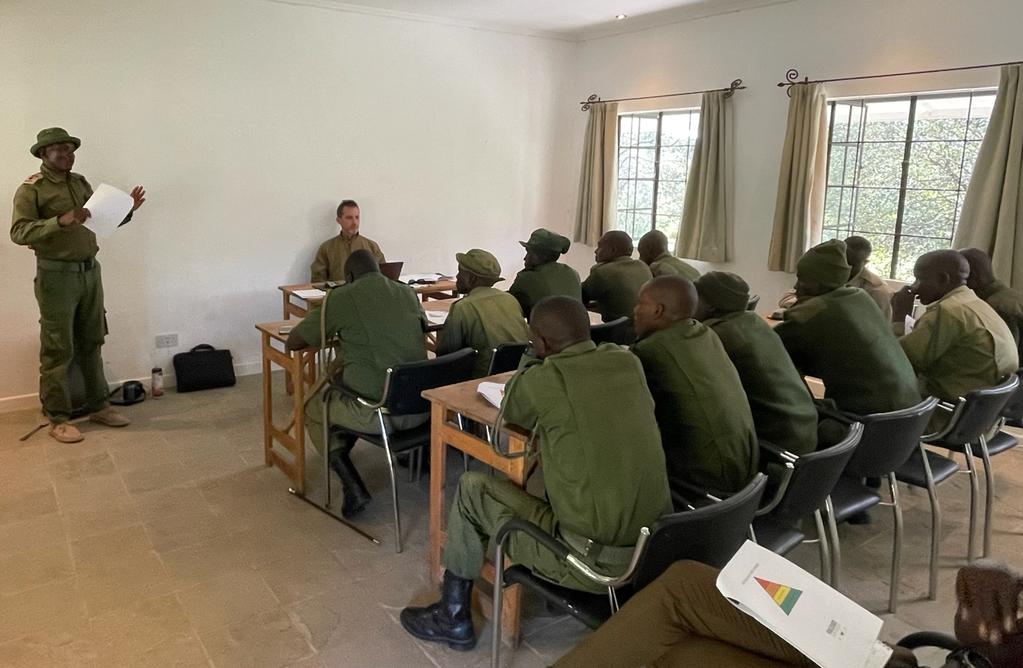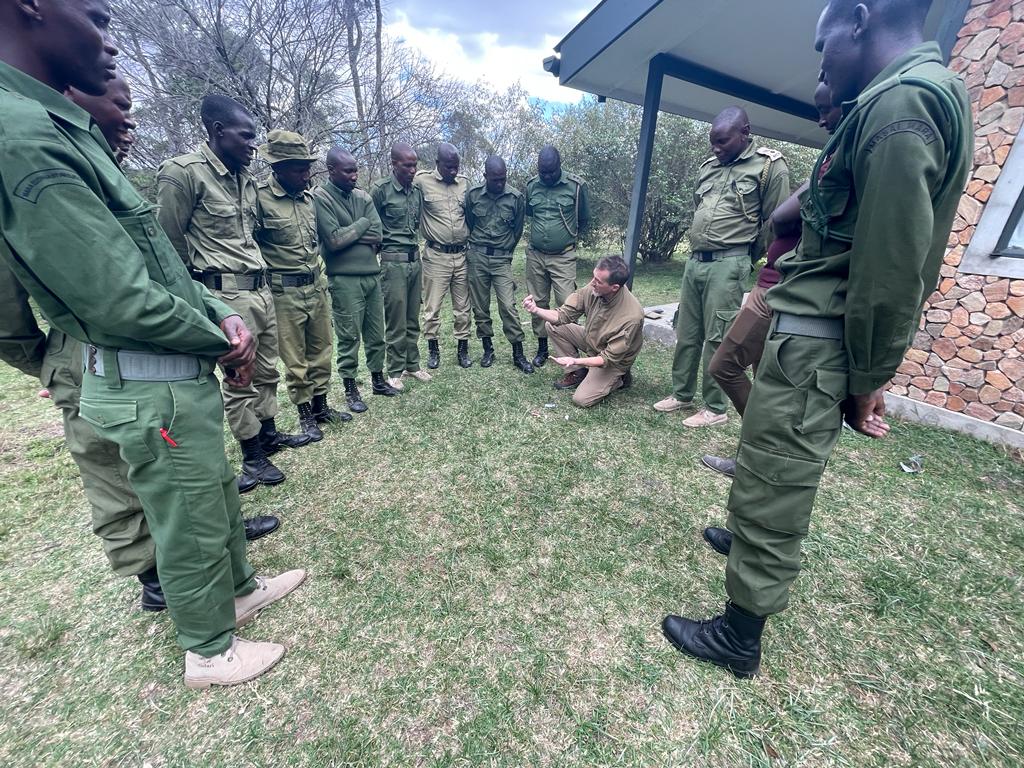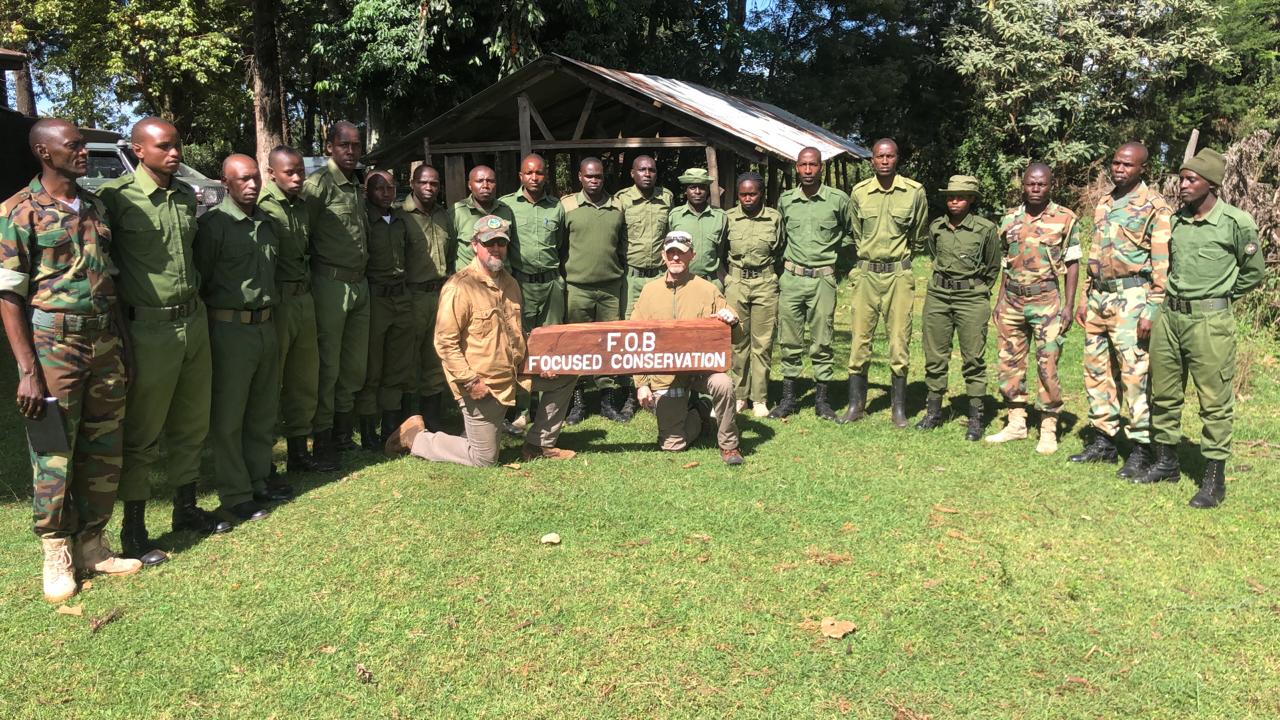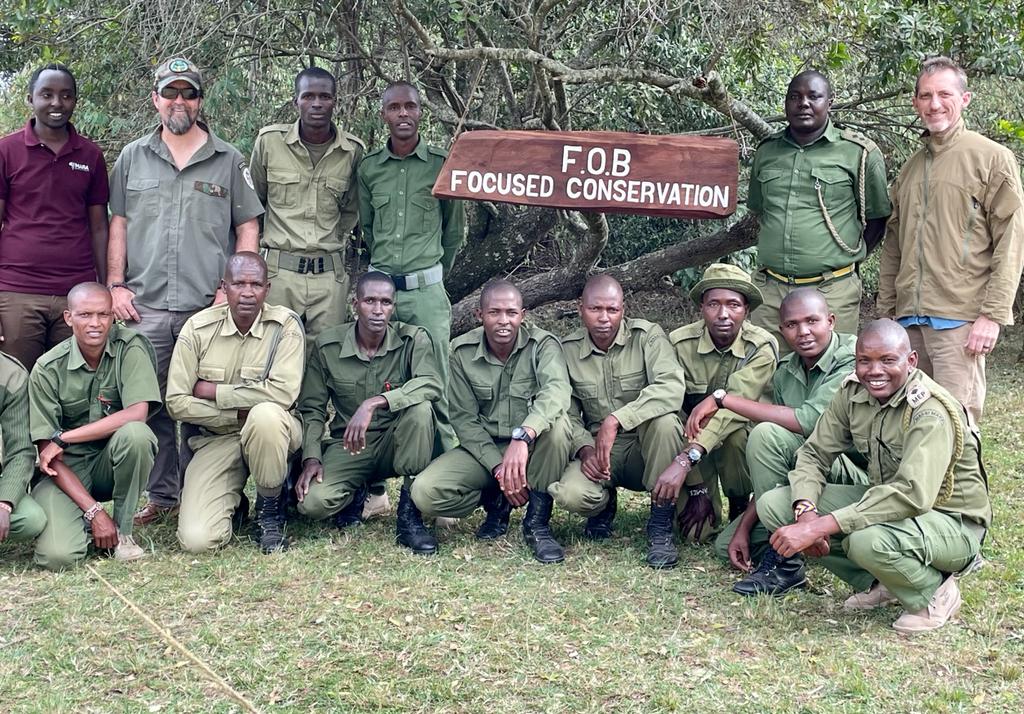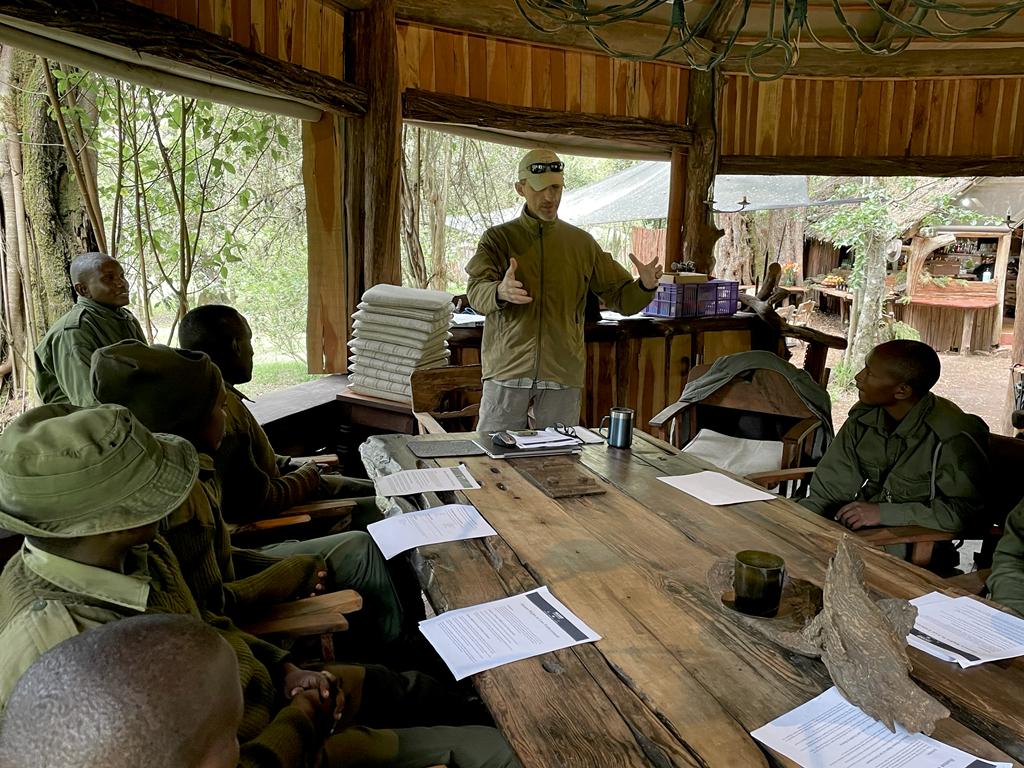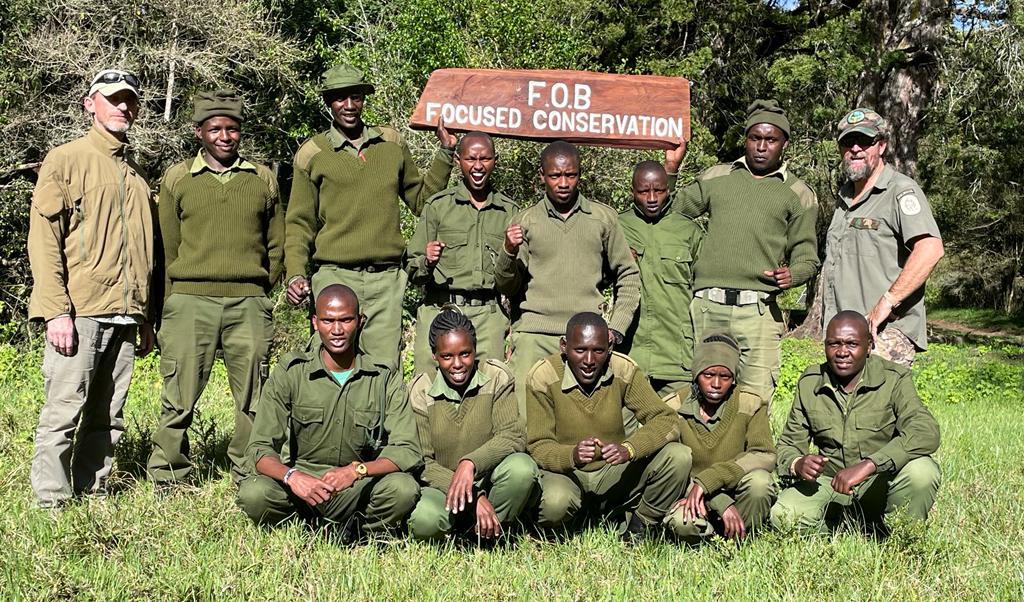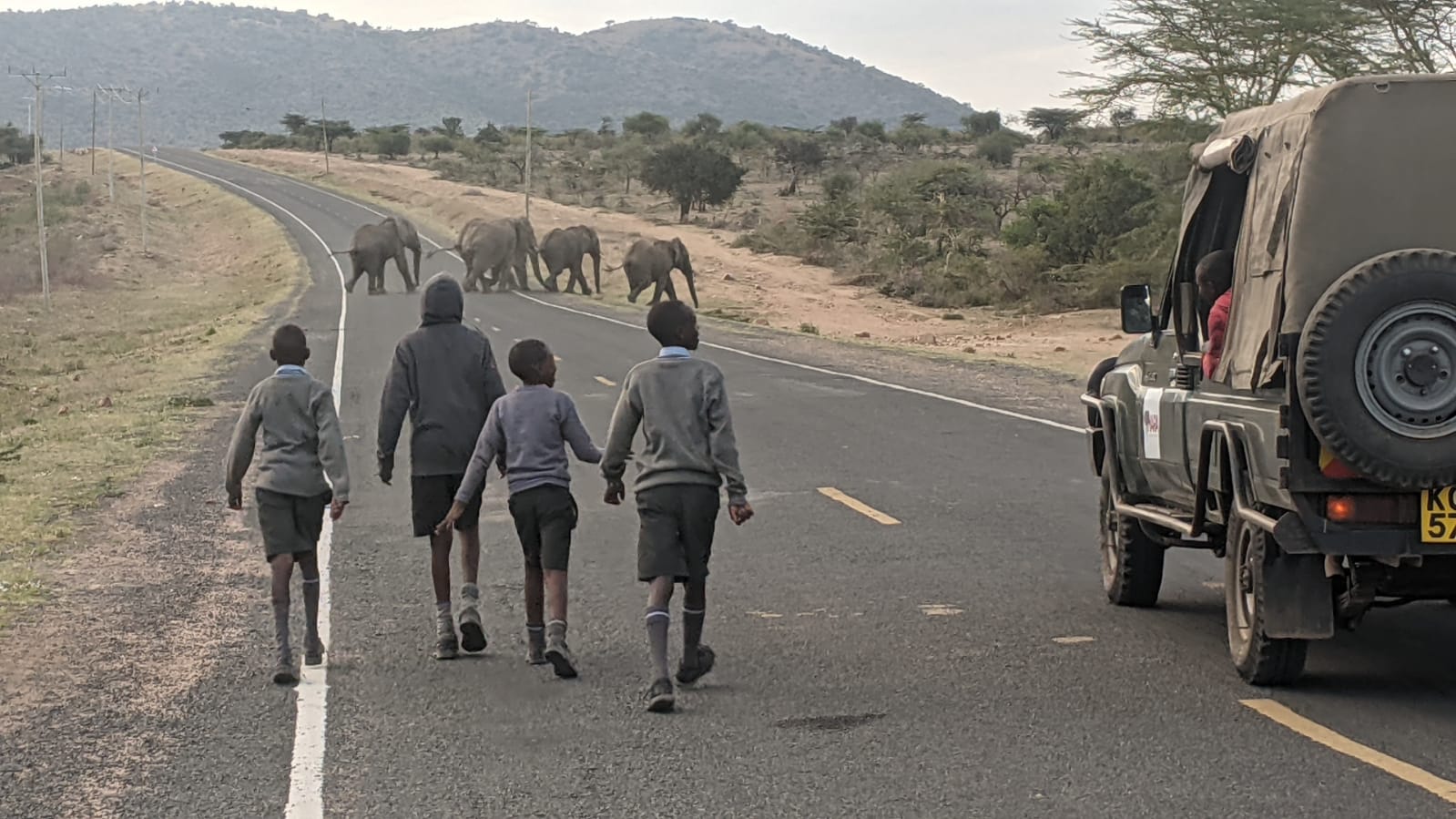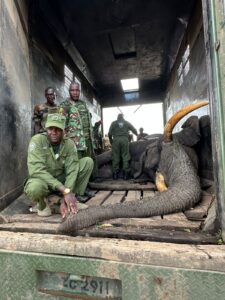The fourth quarter kicked off with a large ivory bust for Mara Elephant Project’s intelligence unit. On October 24, Kenya Wildlife Service (KWS) arrested one suspect based on MEP intelligence and confiscated 51 kg of ivory. The suspect had seven pieces of ivory, and after interviewing the first suspect, a second suspect was arrested. Then, in November, KWS arrested one suspect with six pieces of elephant tusks weighing 14.5 kg based on MEP intelligence alongside the Busia investigation team. That’s 66 kg of ivory seized in the fourth quarter alone.


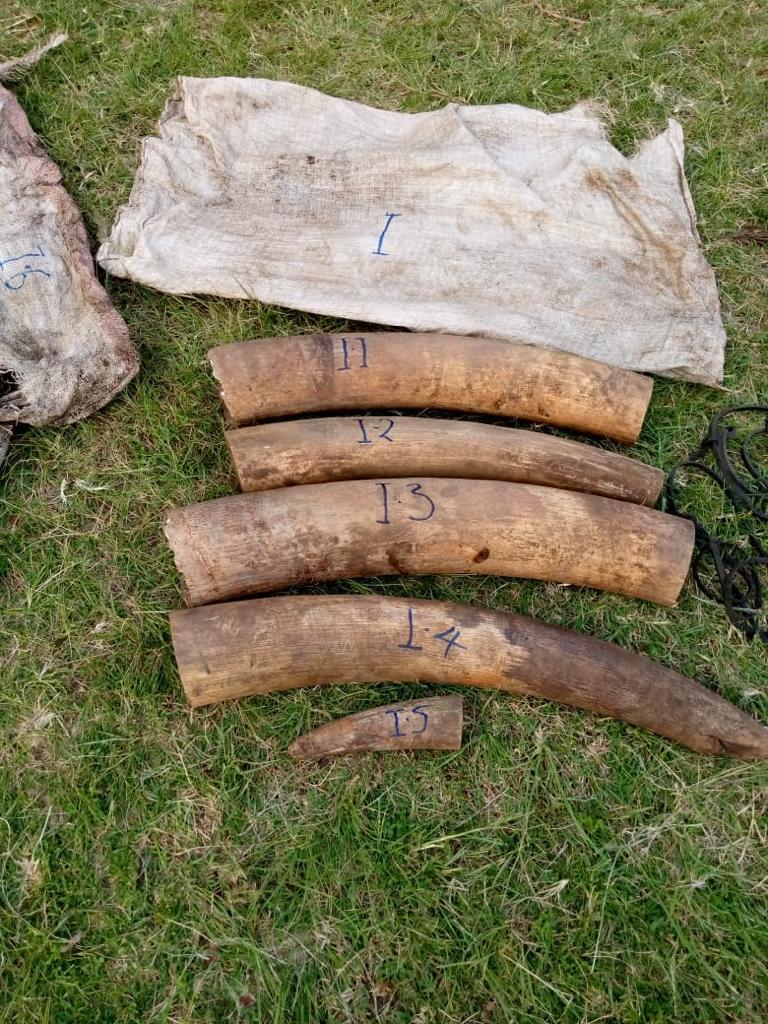
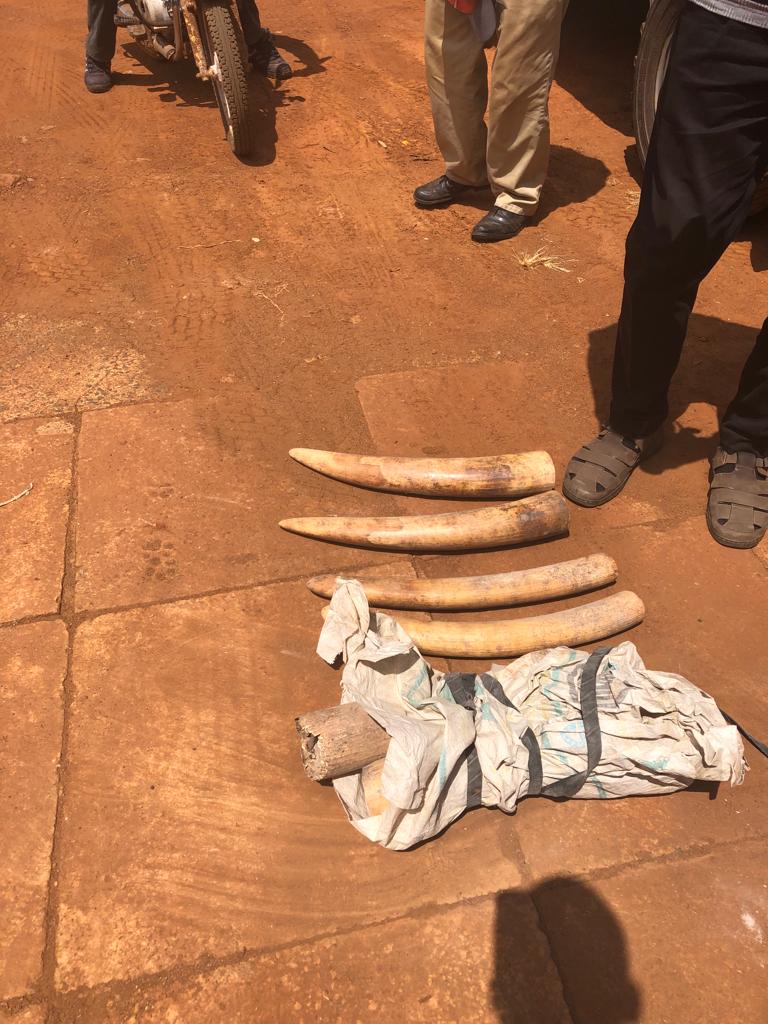
In terms of bushmeat poaching, in the fourth quarter, MEP rangers alongside government partners KWS and Kenya Forest Service (KFS) arrested 17 bushmeat poaching suspects, confiscated 102 kg of bushmeat and removed 82 snares. The two MEP / Sheldrick Wildlife Trust (SWT) Mau De-Snaring Units were responsible for most of these totals. The MEP/SWT “Golf” Mau De-Snaring Unit arrested two bushmeat poachers on October 13. In November, on the 5th, one suspect was arrested by the “Golf” team with 10 kg of bushmeat, a spear and a panga. On the 7th, one suspect was arrested by the “Charlie” team with 5 kg of bushmeat. Then, on the 29th, two suspects were arrested laying snares by the “Charlie” team. On November 9, the MEP/SWT “Golf” Mau De-Snaring Unit removed 16 snares in the Mau Forest. Then, again on the 17th, the team removed seven snares. On the 24th, they removed eight snares and two days later another 10 snares were removed by the same team. Finally, on November 25, the “Alpha” team arrested two suspects with 16 kg of bushmeat.
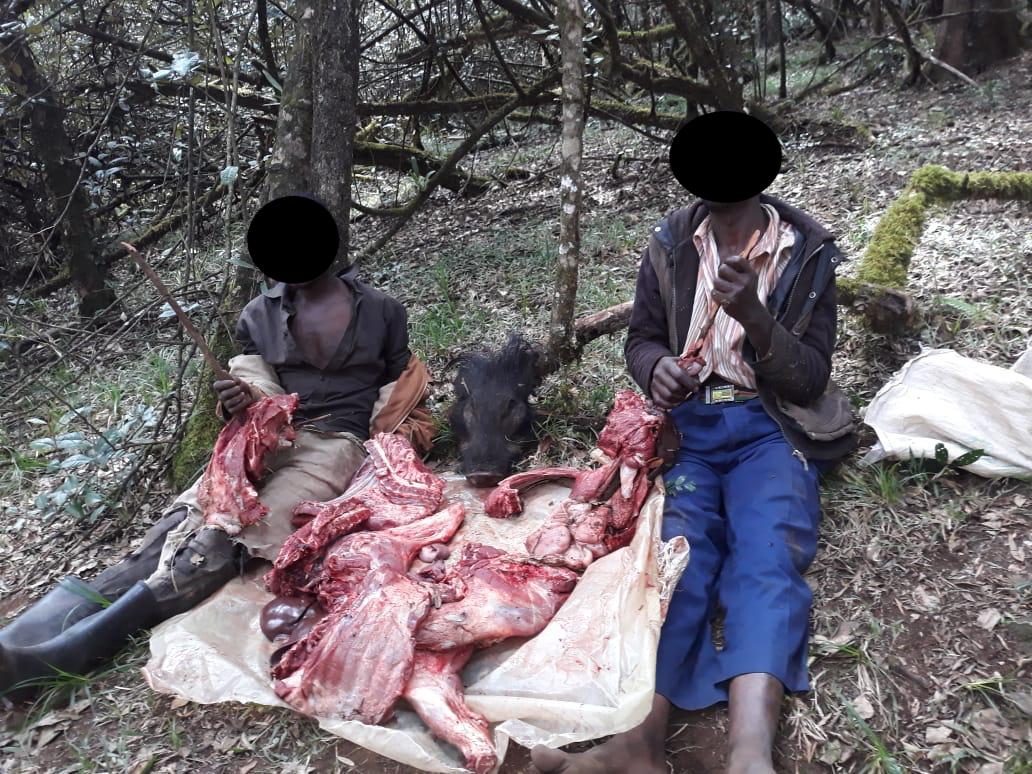
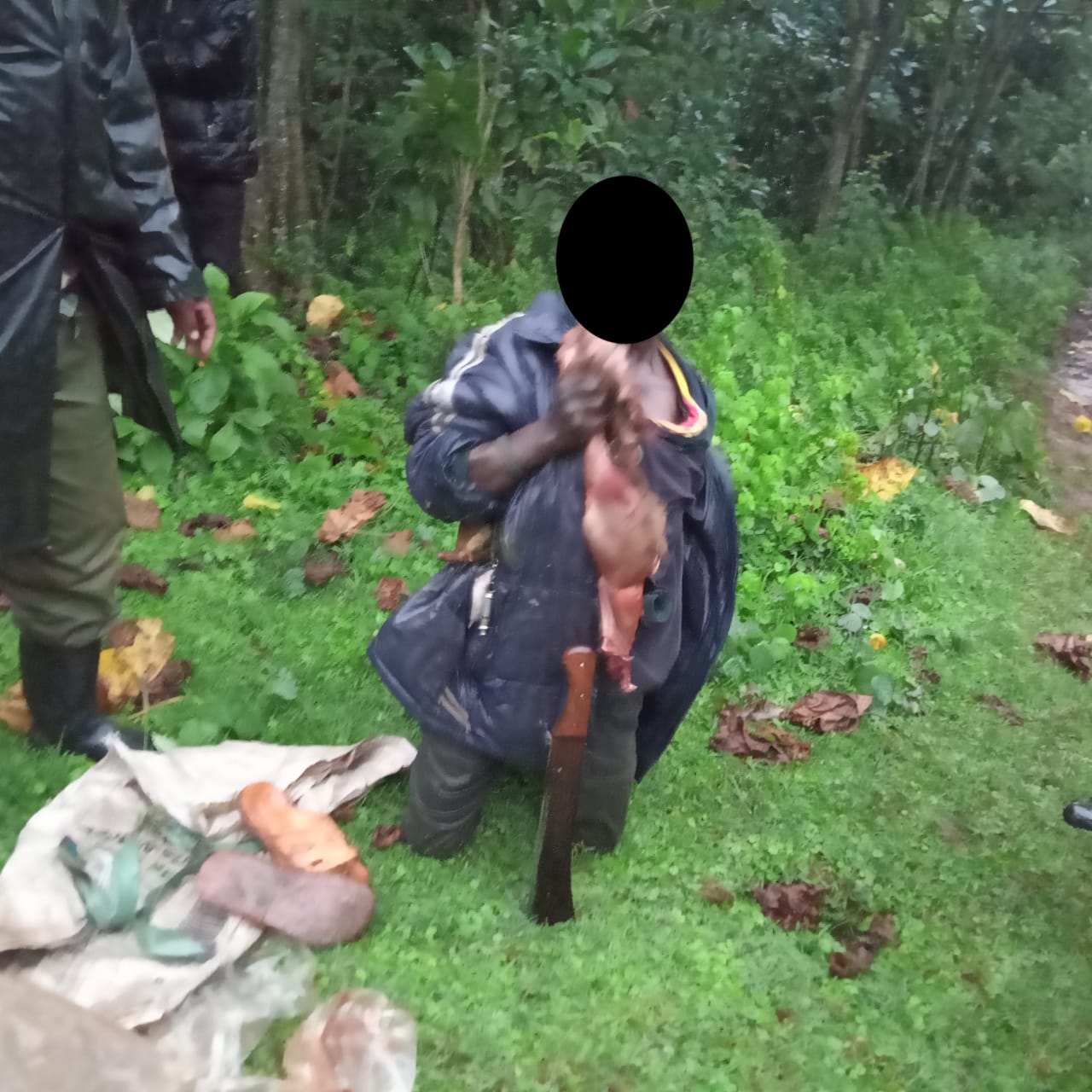
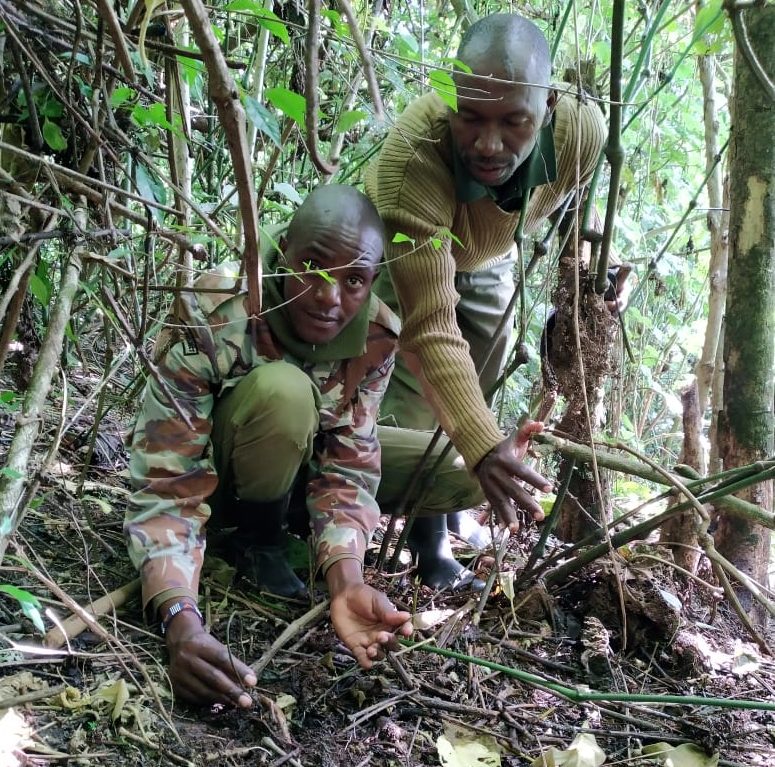
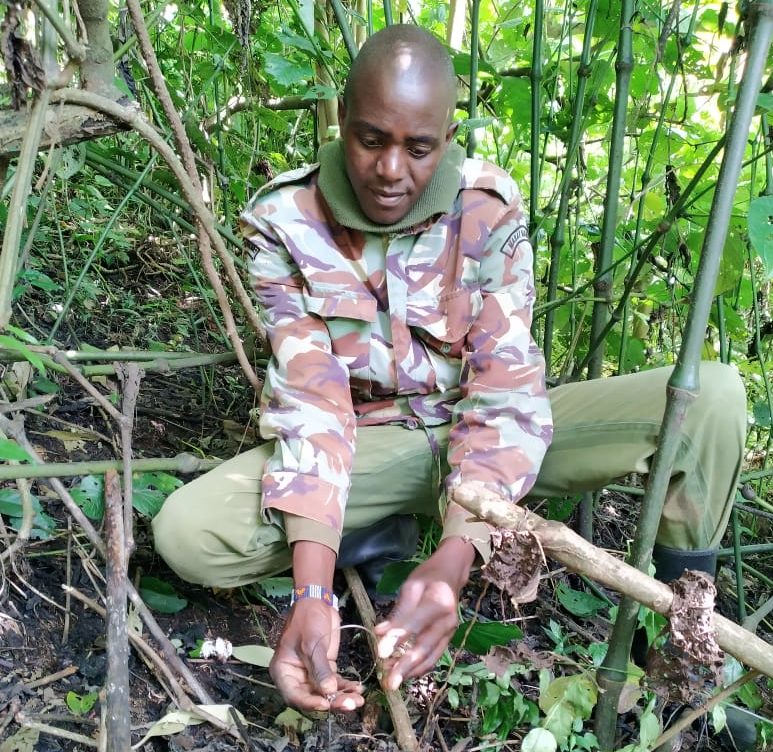
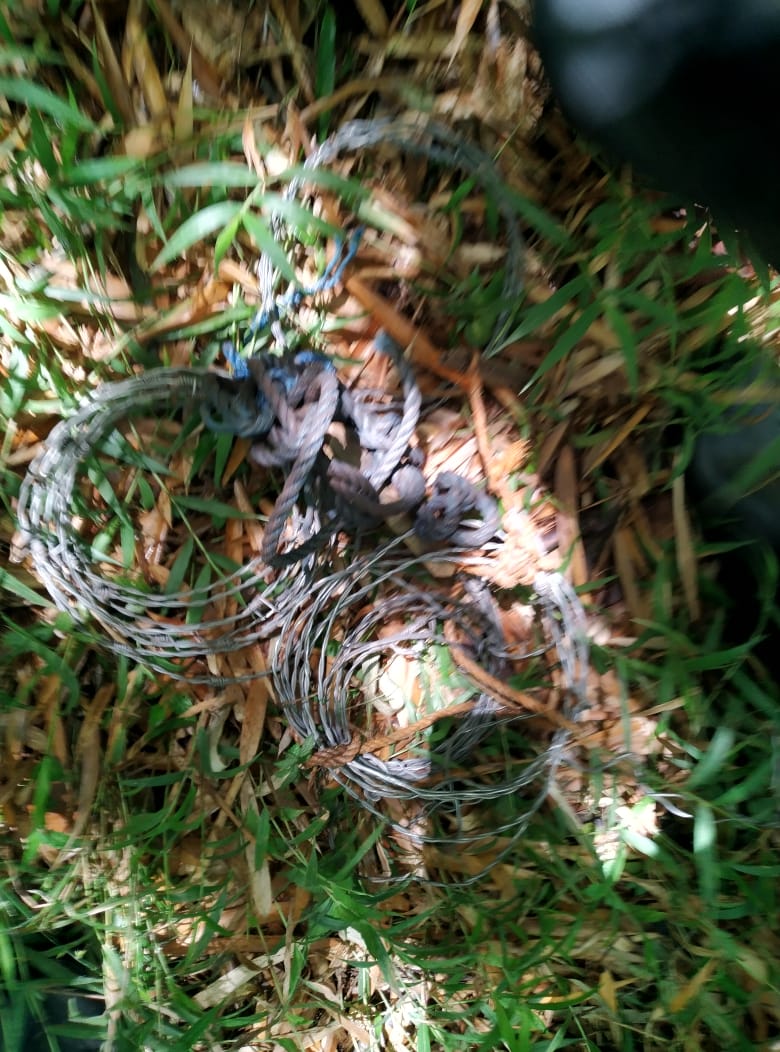

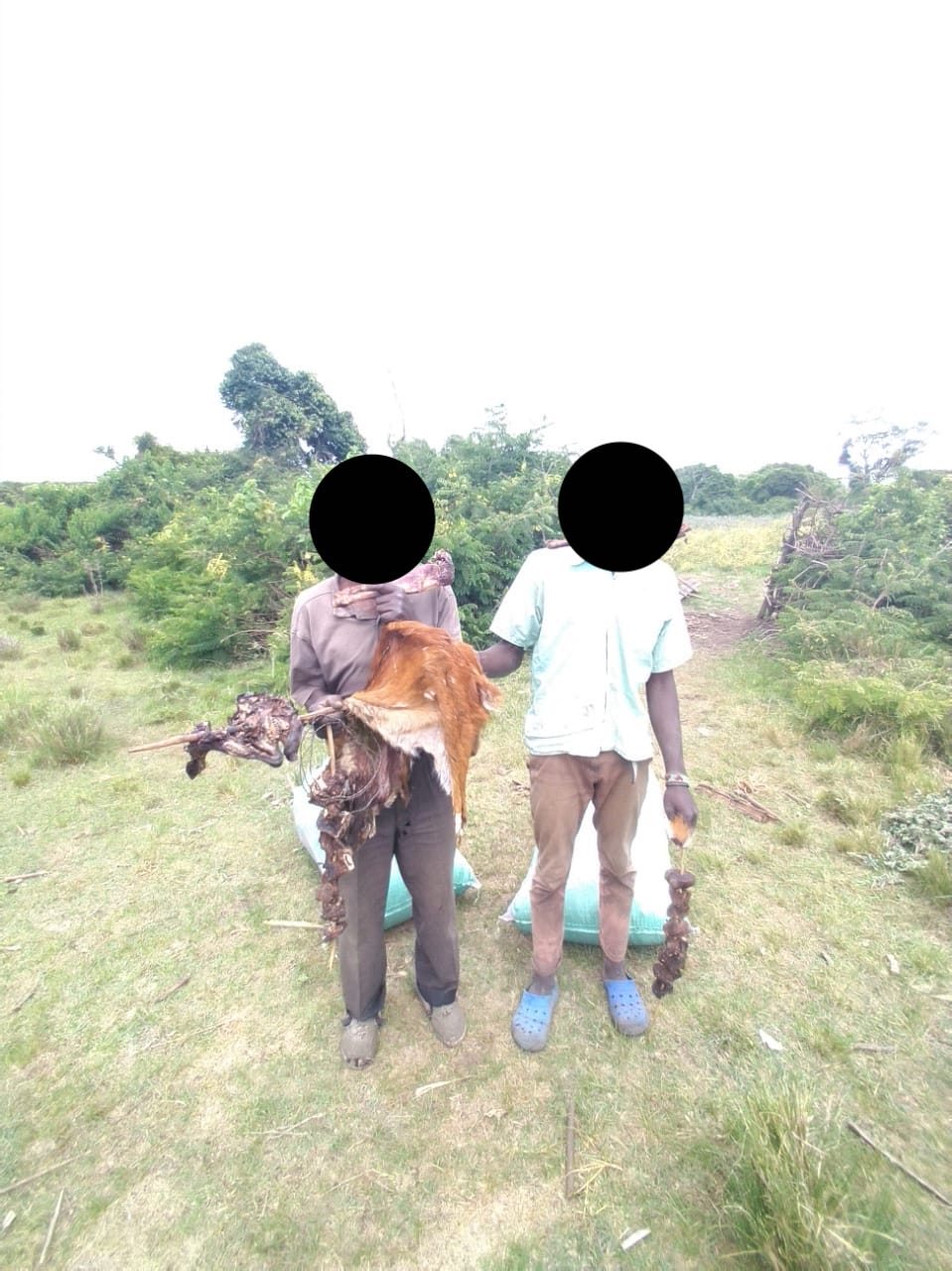
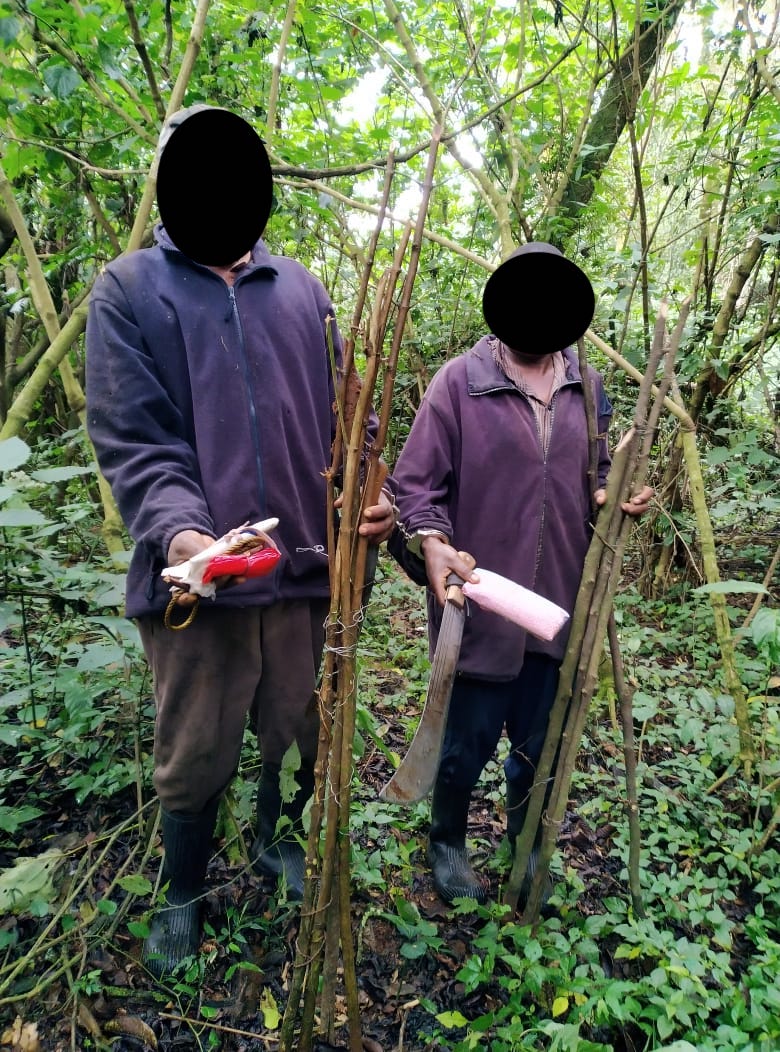
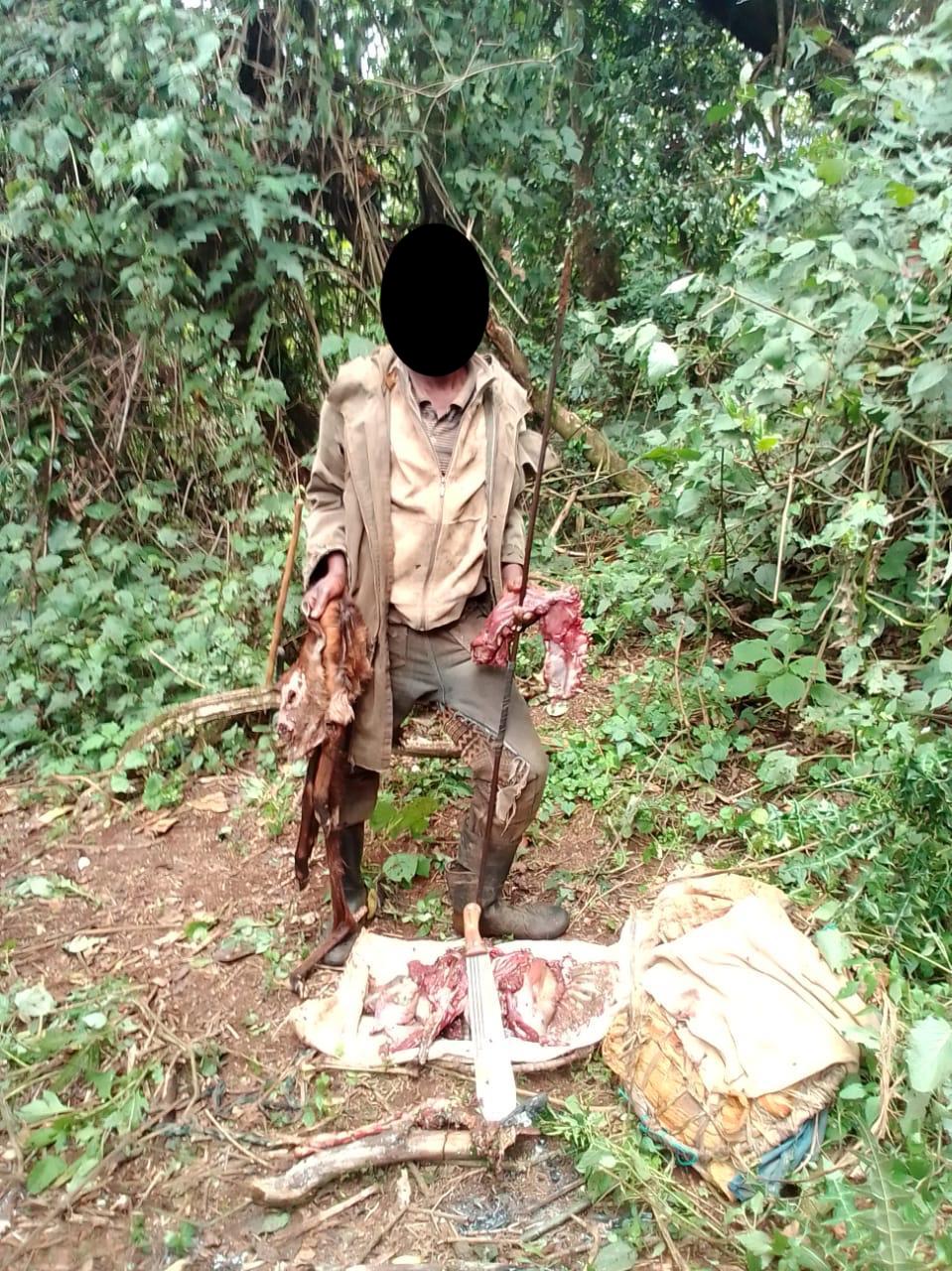
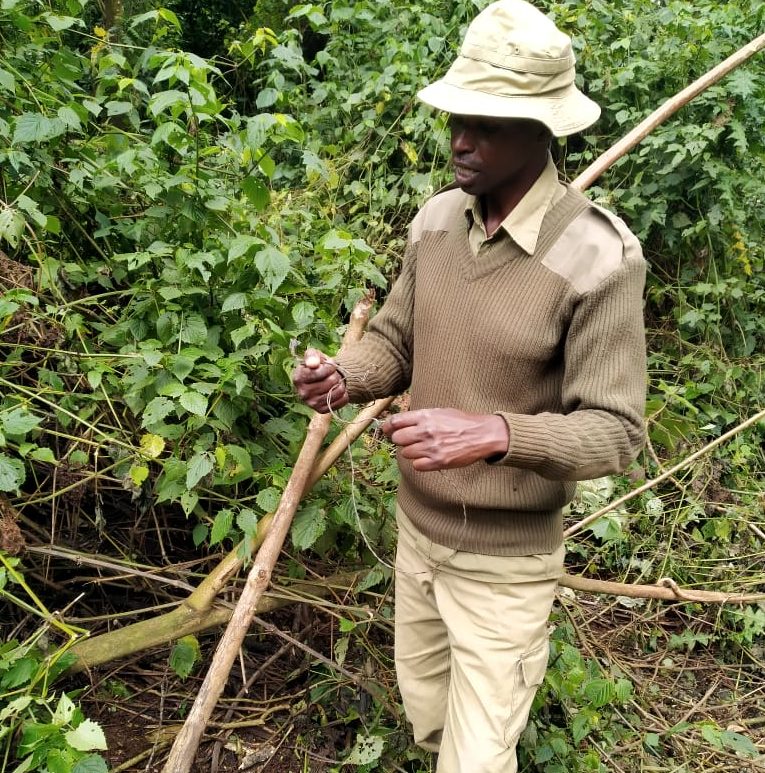
In the fourth quarter, MEP rangers alongside government partners arrested 76 habitat destruction suspects, destroyed 1,302 charcoal sacks and 78 kilns and recovered four power saws, 413 posts and 826 pieces of timber. The MEP/SWT “Charlie” Mau De-Snaring Unit successfully destroyed eight active kilns and confiscated 41 bags of charcoal over the last two weeks of October. On October 16 and 18, the SWT Mau De-Snaring Unit destroyed one active kiln and confiscated 92 red cedar posts and 43 timbers found in a storage unit. Then, on October 18 at night, they found 17 donkeys transporting cedar posts and arrest four people and confiscated 265 posts. In early November, there was an arrest on the 3rd by the “Foxtrot” team that included 20 timbers. On the 11th, there were 14 bags of charcoal destroyed by the MEP/SWT “Charlie” Mau De-Snaring Unit. The next day, the MEP/SWT “Golf” Mau De-Snaring Unit arrested two suspects and destroyed five active kilns. On the 16th, the same team destroyed five active kilns, then on the 25th the “Foxtrot” team recovered 30 logs and arrested two suspects alongside government partners cutting down the Loita Forest’s indigenous trees and recovered a power saw.
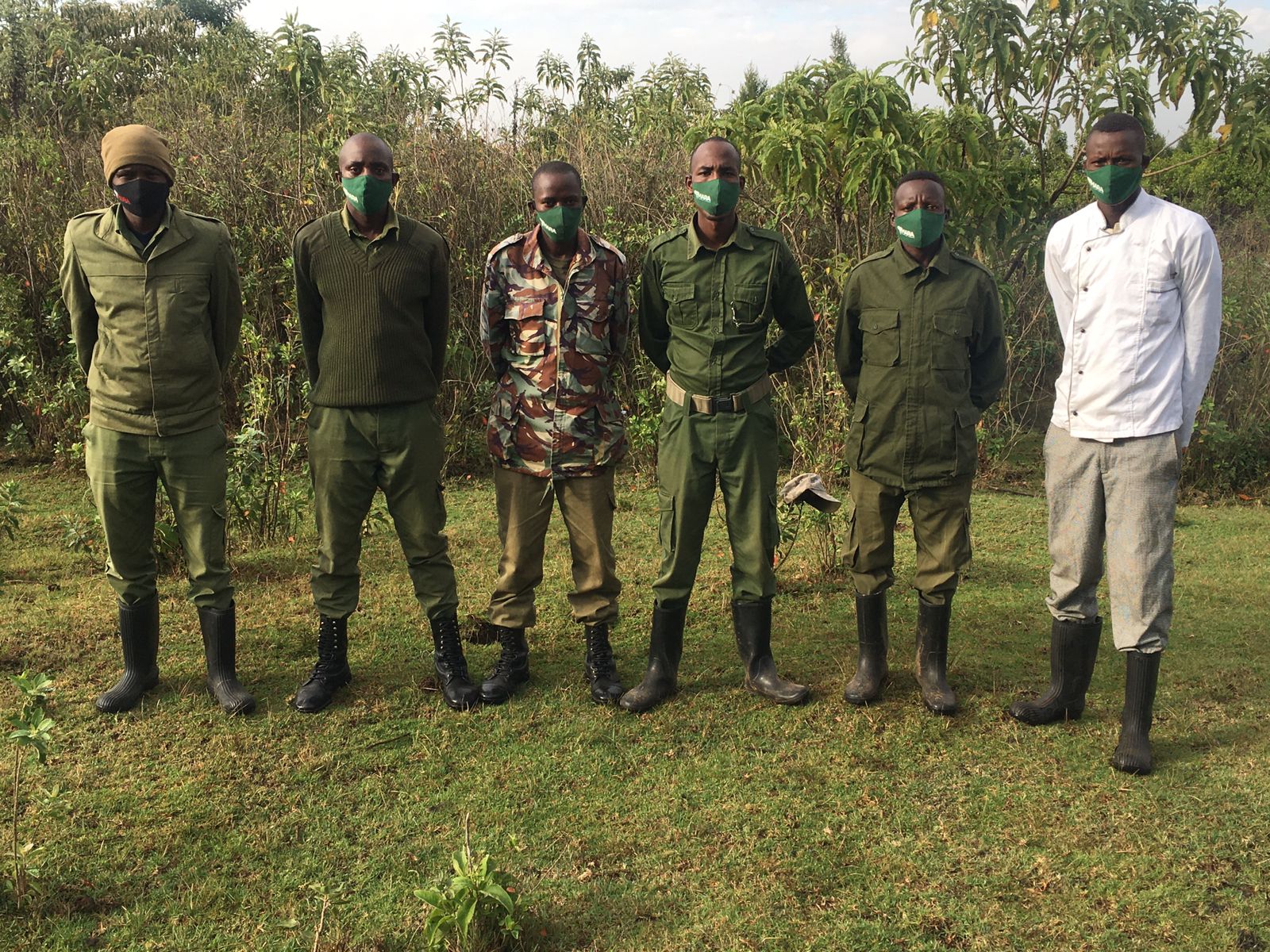

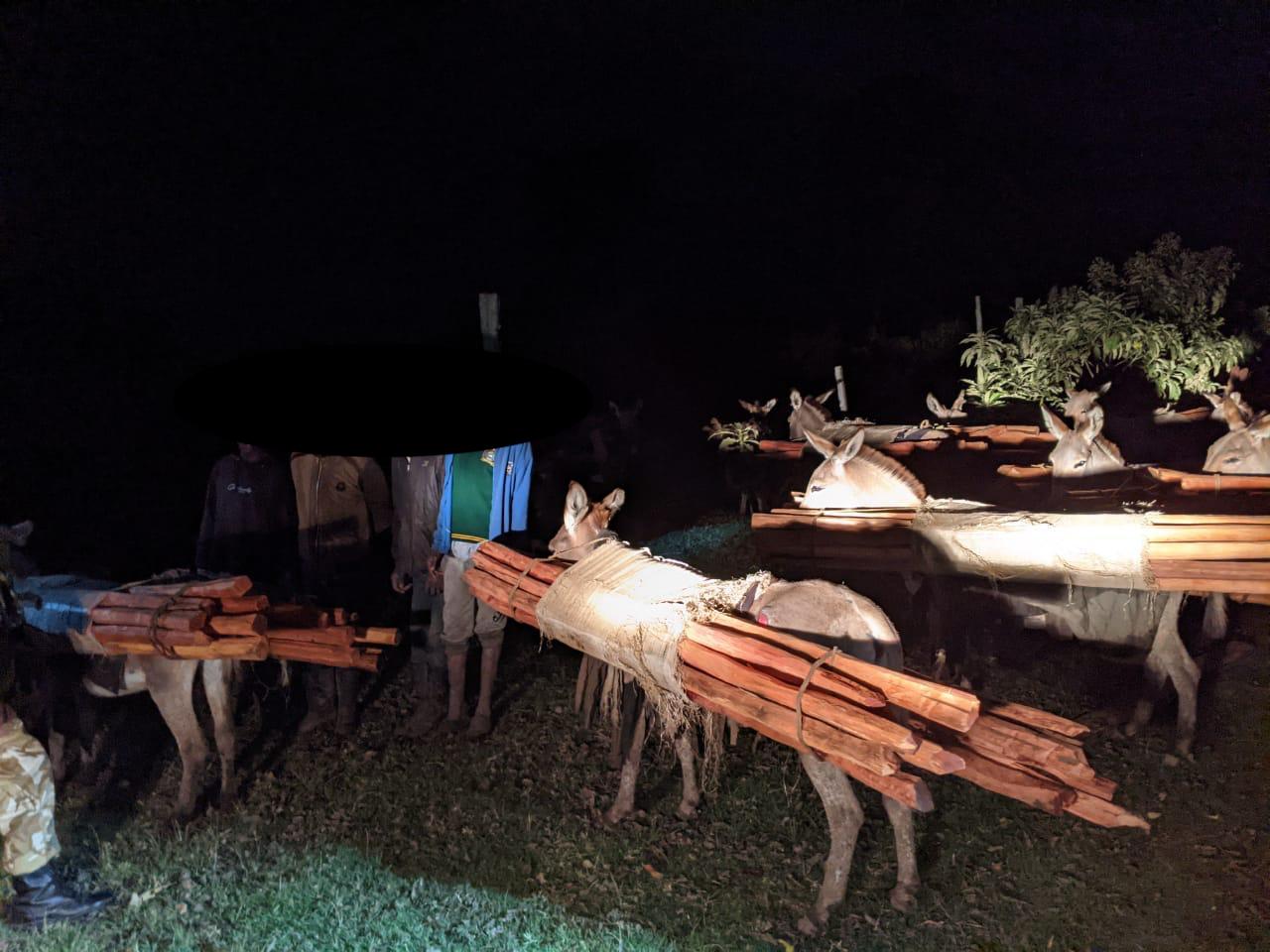
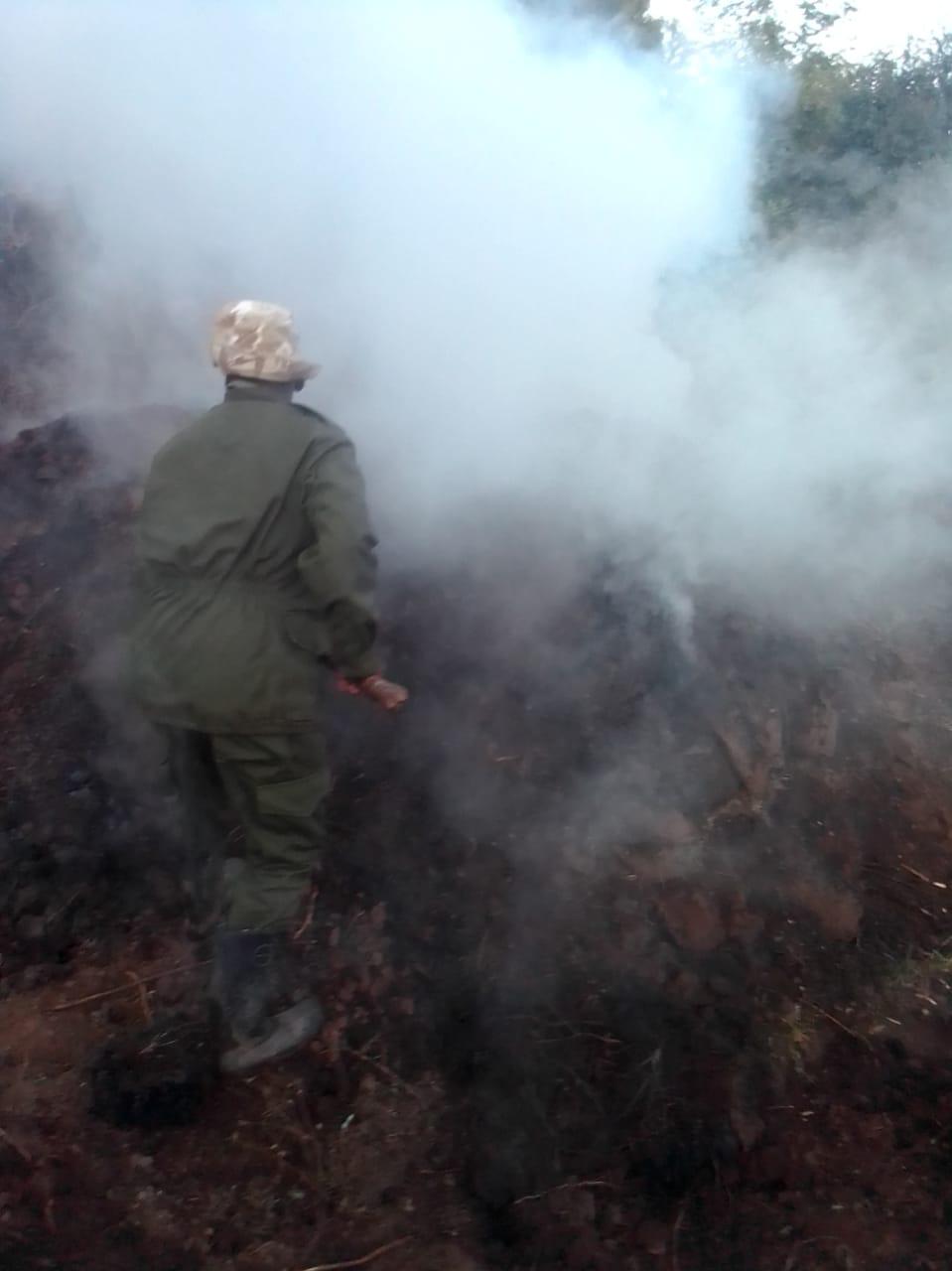
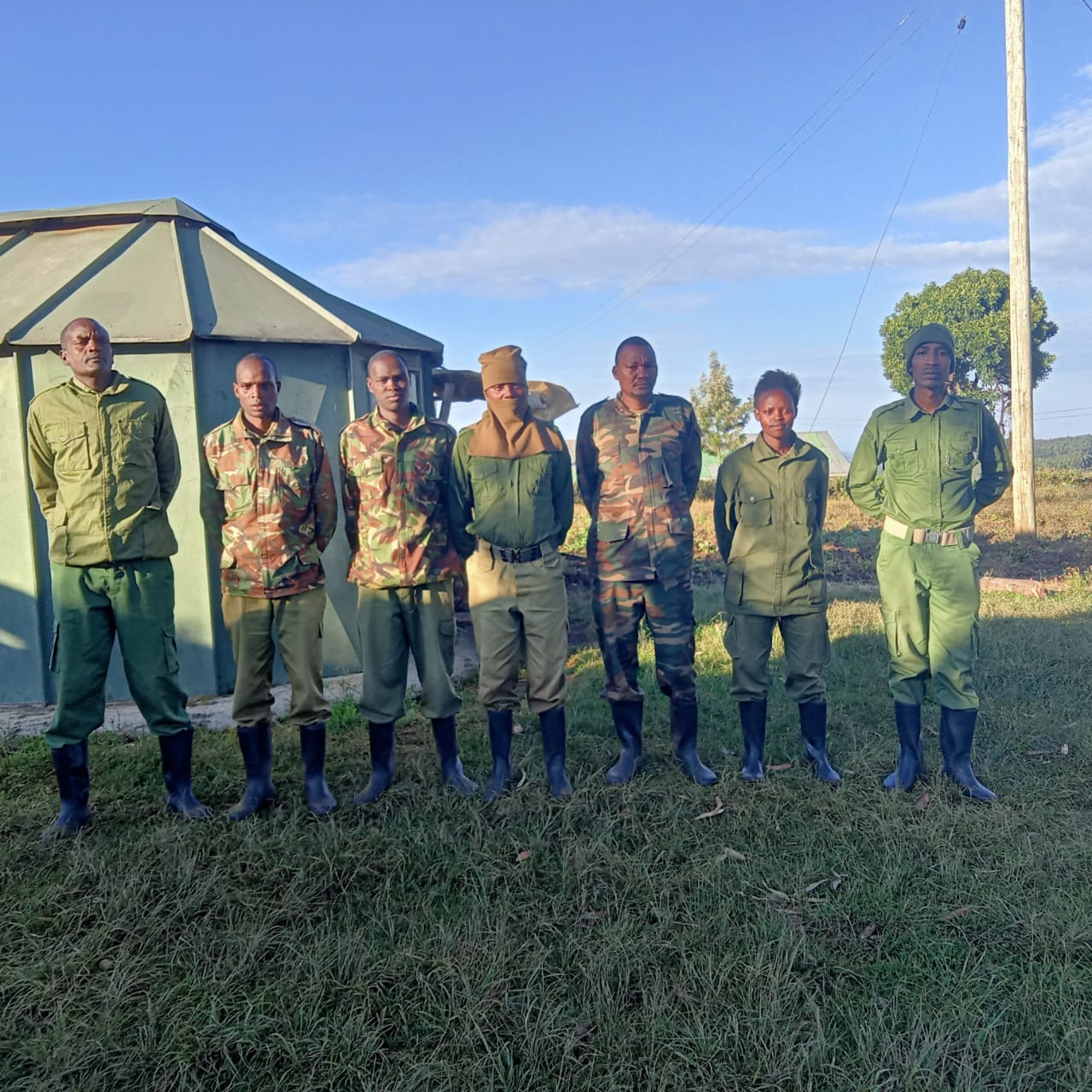

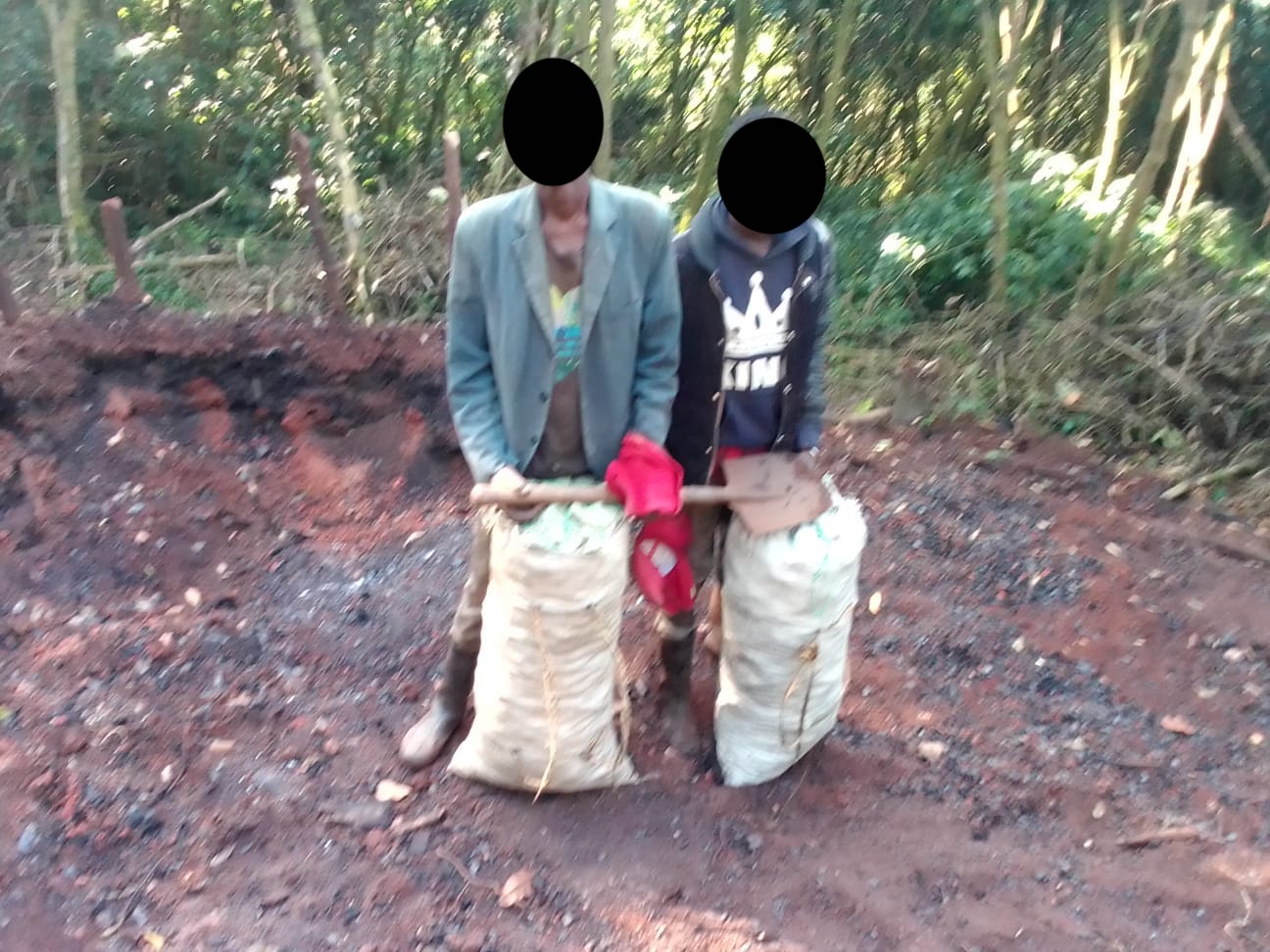
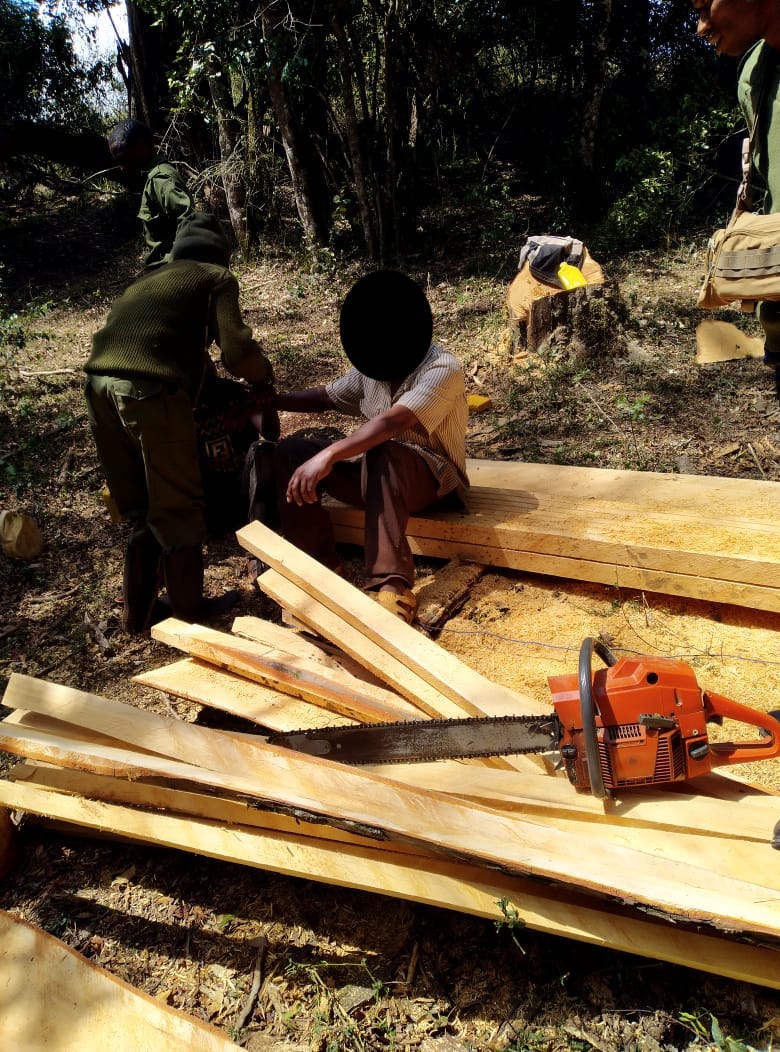
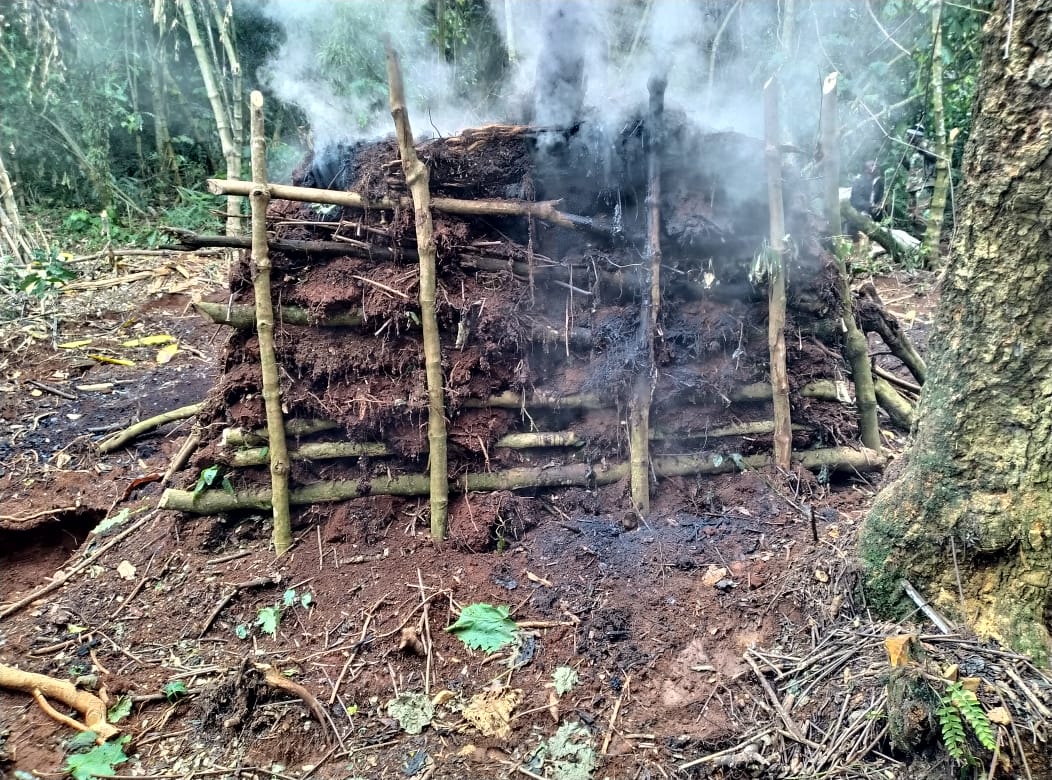
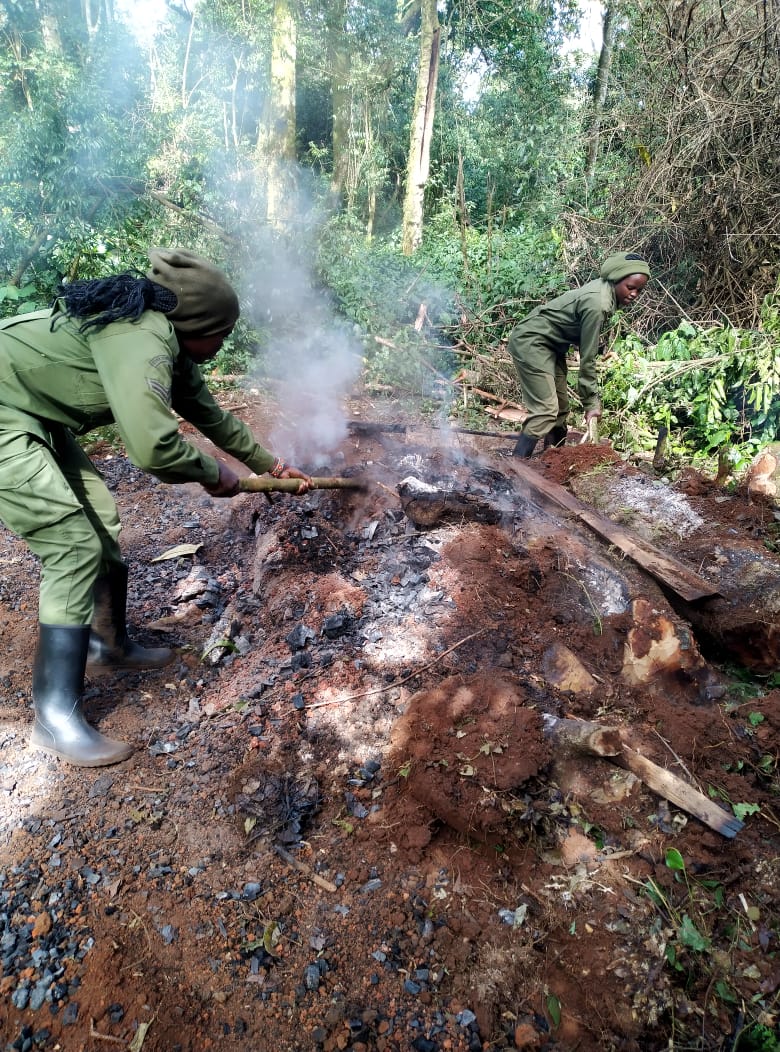


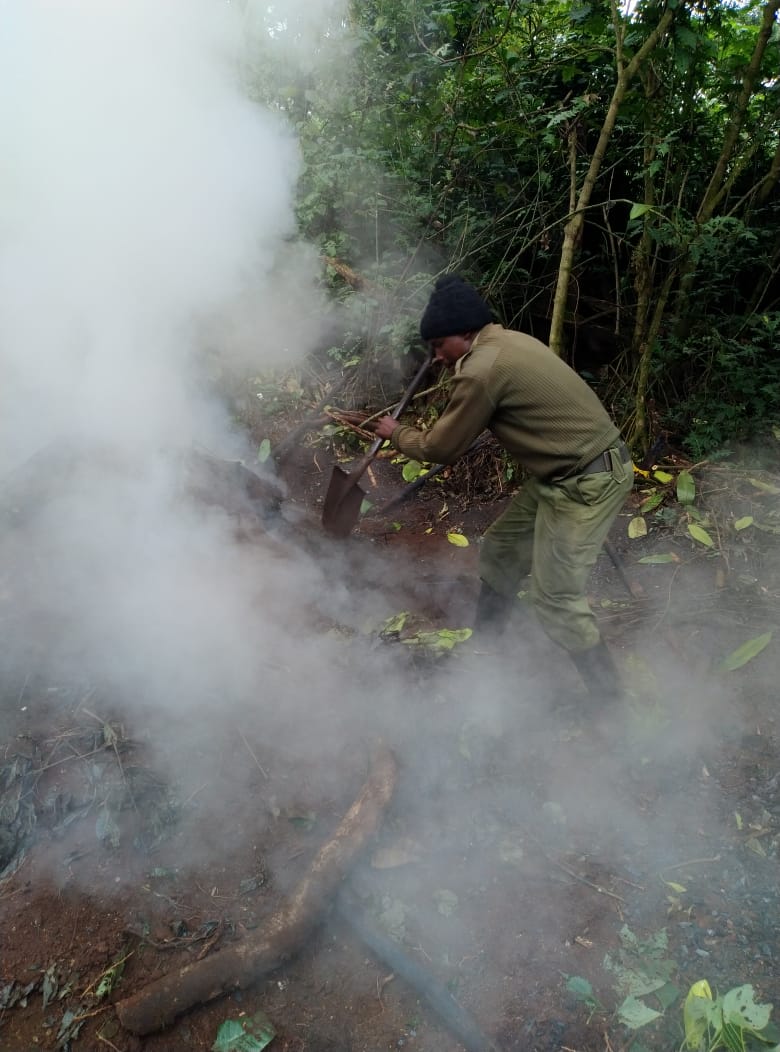
Overall, in the fourth quarter, MEP rangers patrolled 3,389 km on foot, 28,565 km in a vehicle and 5,754 km on a motorbike. On December 4, the second annual Ultra MARAthon took place with 54 relay teams participating. MEP’s ranger relay team, which included rangers Stanley Momposhi, Nashola Karia, Cosmus Bett and Edward Kuyo, won their division for the second year in a row officially making them the fastest rangers in the Mara.

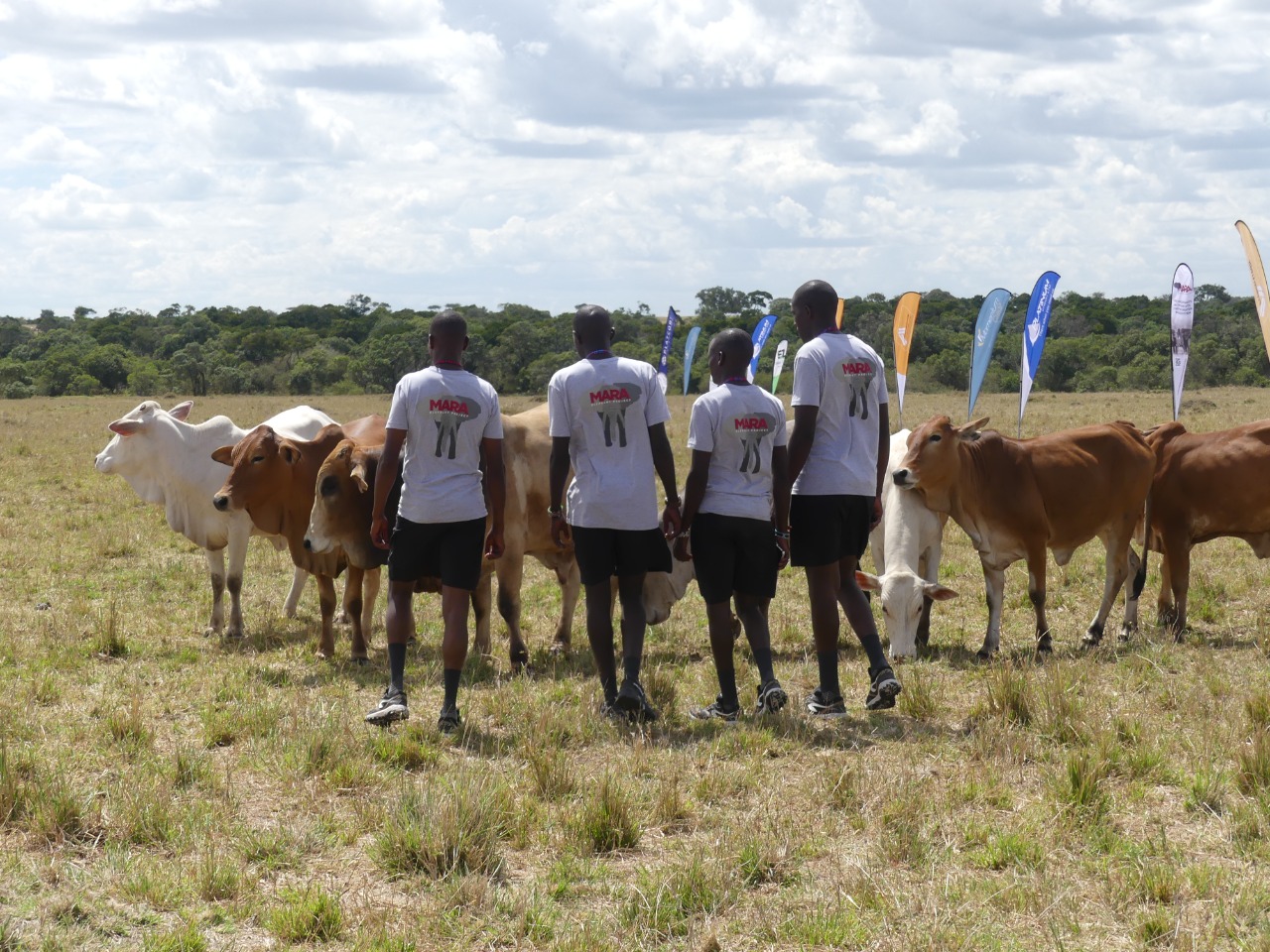
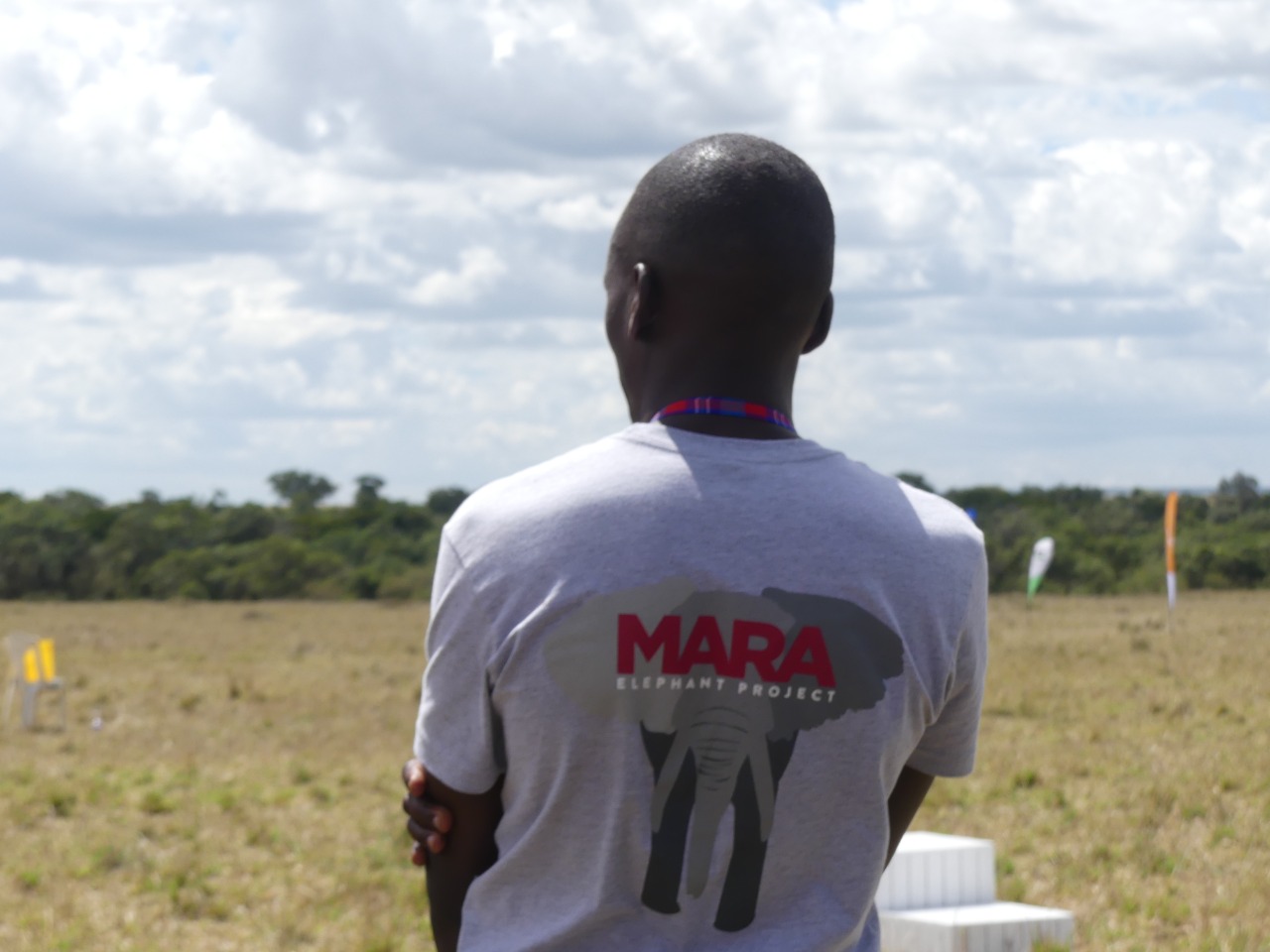

The MEP “Echo” ranger unit provided a very specific school escort a few times in their area of operation. They were called in to remove a group of elephants from the road to allow children to cross on their way to school. Each time, they stayed by the children’s side to ensure they were safely escorted to school and kept the elephants at bay.
MEP and international NGO How Many Elephants are excited to announce that the first-ever recipient of their World Female Ranger Award has been given to Caren Yegon Cheptoo, a MEP ranger deployed with the Mau De-Snaring Unit funded by Sheldrick Wildlife Trust. Tasked with protecting the vitally important Mau Forest in the Greater Mara Ecosystem, Caren and her ranger team combat habitat destruction, poaching and conflict in their area of patrol. How Many Elephants wants to shine a light on female rangers work in the field, and MEP is extremely honored that Caren is the inaugural recipient. Thank you to How Many Elephants for acknowledging our ranger’s important work.
Over three days in December, Focused Conservation conducted a Human Rights in Law Enforcement training for 43 MEP rangers and field researchers. All of MEP’s rangers receive human rights training during their initial training course; however, this was an important refresher course for all of the participants to ensure best human rights practices are followed during any law enforcement activities or when they are engaging with the community. The course was designed for wildlife rangers operating in Kenya who observe and adhere to Kenyan human rights laws. This included training on how to carry out their roles in a manner that is compliant with these laws and covered many topics starting with the basic standards of human rights, use of force and a worst-case scenario, an event where a ranger is restrained and needs to break free. While very rare, rangers should know what options are available to free themselves, so the instructors provided training on defeating restraints. The training took place at MEP HQ and at the ranger posts in the Mau Forest and Loita Forest and included partners KWS, KFS and Bongo Surveillance Project (BSP) rangers. MEP would like to thank Focused Conservation for understanding that our rangers training, readiness, safety, and well-being are crucial to their safety and success in the field.
